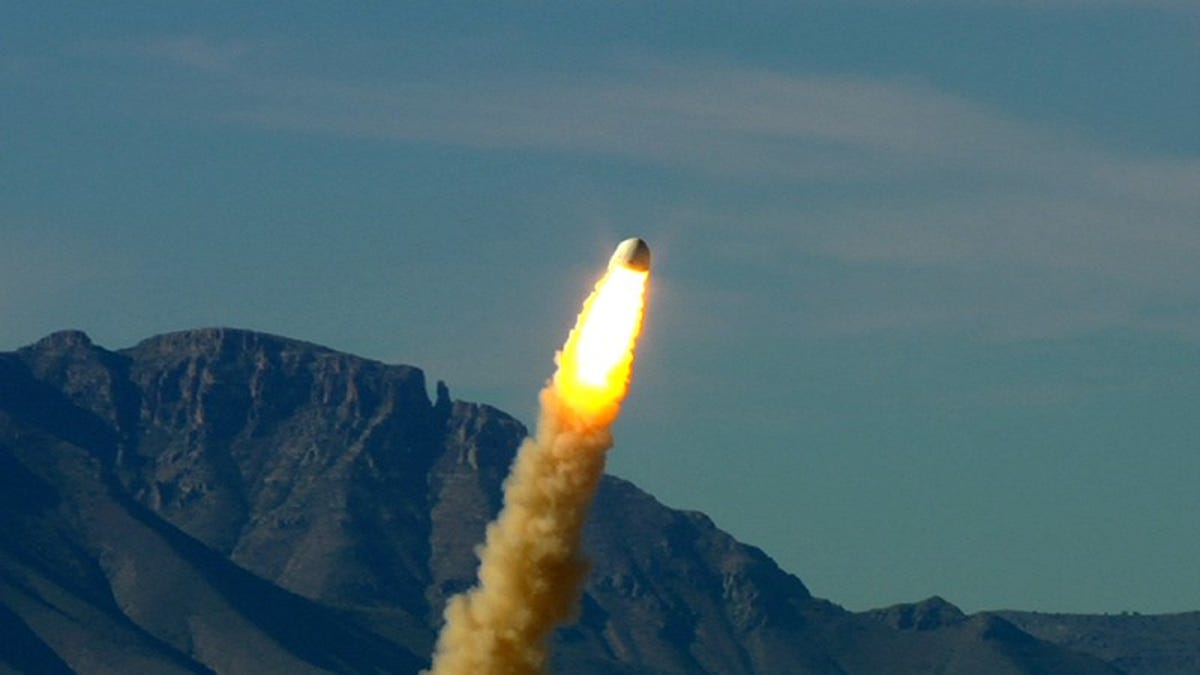Successful Blue Origin rocket test might include an explosion
Jeff Bezos' rocket company will test a system that would keep crew safe in the event of a bad rocket booster. By design, the booster isn't likely to survive. You can watch it live Wednesday.
Update: The test has been rescheduled to Wednesday morning due to weather conditions. The webcast will begin at 7:45 a.m. PT.
Jeff Bezos' Blue Origin is planning to test one of its spaceflight systems and chances are good a rocket booster will be destroyed in the process, perhaps in spectacular fashion. You can watch the fireworks live when it all goes down Wednesday morning.
Blue Origin is set to conduct an in-flight escape test from its launch facility in the west Texas desert around 8 a.m. PT on Wednesday. It's the first such test we've seen since the Apollo program. The basic idea is that if some sort of problem is detected with the rocket booster, the crew capsule separates from the booster. Then, an escape motor kicks in to navigate the crew out of the way before deploying parachutes to allow the capsule to float safely back to the surface of the Earth.
The escape system is designed in such a way that the motor is not destroyed after each launch, as it was in the Apollo program. This naturally fits with the company's business model of making access to space cheaper in part by making rockets reusable, much like competitor SpaceX. (Last month, an unmanned SpaceX rocket exploded unexpectedly during a test at Cape Canaveral.)
Blue Origin will conduct the test with a New Shepard rocket that it has already sent to the edge of space and landed multiple times.
"It's the first ever rocket booster to fly above the Karman line into space and then land vertically upon the Earth," Bezos wrote in a blog post last month. "We'd really like to retire it after this test and put it in a museum. Sadly, that's not likely," the CEO said.
Bezos explains Blue Origin's rocket booster is not designed to survive an in-flight escape. It will probably be destroyed when the escape command is given Wednesday and the crew capsule separates, blasting the booster below it "with 70,000 pounds of off-axis force delivered by searing hot exhaust."
He says there's a slight chance they'll be able to navigate the booster to a safe landing after the test, but it's more likely it will wind up crashing onto the desert floor with most of its unspent propellant creating one heck of a Texas-size blast.
Nothing like a successful test that ends with a huge explosion. You can watch the whole thing via webcast on the Blue Origin website, which is set to begin at 7:45 a.m. PT Wednesday. We'll also embed the live stream below once it's available.
Updated at 1:40 p.m. PT with new launch date and time.


